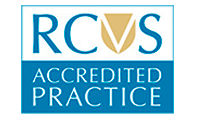24 hour contact: 01707 666297
RVC research reveals how ageing may contribute to tendon injuries
New research from the Royal Veterinary College (RVC) has identified the different cell populations in horses’ tendons and established which cells are most affected by ageing. These findings will help develop a better understanding of why older horses (and humans) are more prone to tendon injuries and inform future treatments.

Tendons connect muscle to bone and are essential for skeletal movement. However, tendons are prone to injury, both in humans and horses, and the risk of injury increases with ageing. The cells within tendons are responsible for maintaining tendon structure by repairing any damage within the tendon. The main type of cells in tendons are called tenocytes, which are well-researched yet, little is known about other types of cells present and how they are affected by ageing.
Lead researcher, Dr Chavaunne Thorpe, Lecturer in Basic Sciences at the RVC and her post-doctoral research associate Dr Danae Zamboulis, alongside Professor Peter Clegg at the University of Liverpool, Professor Hazel Screen at Queen Mary University of London and Professor Helen Birch at UCL, set out to identify the different cell populations in horses’ superficial digital flexor tendon, similar in function to the human Achilles tendon, and discover which are most affected by ageing. They used a technique called single cell RNA sequencing to identify the different cell types in superficial digital flexor tendons from both young and old horses.
In total, the research team identified 11 different types of cells. This included several different populations of tenocytes as well as cells associated with blood vessels and the immune system. Findings concluded that one tenocyte population, and one blood vessel-associated population were particularly affected by ageing, with an altered ability to maintain tendon structure and respond to injury in these cell types.
Identifying and characterising the different cell populations and establishing their function in healthy tendons is the first step to understanding how altered cell function contributes to age-related tendon injury. This work will allow the development of treatments for tendon injury targeted at those cells affected most by ageing.
Dr Chavaunne Thorpe, Lecturer in Basic Sciences at the RVC and lead author, said:
“Our results uncover just how complex and variable cell populations within tendons are and show that some cells are particularly prone to age-related alterations, helping to explain why the risk of tendon injury is higher in older individuals.” “The findings of these experiments will allow future studies to develop therapeutics for tendon injuries targeted at specific cell populations.”
Dr Danae Zamboulis, Postdoctoral Researcher at the RVC, said: “
This study is an exciting step towards understanding the cells that regulate tendon function and injury.”
Notes to Editors
Reference
Danae E. Zamboulis , Neil Marr , Luca Lenzi , Helen L. Birch , Hazel R. C. Screen , Peter D. Clegg , Chavaunne T. Thorpe. The Interfascicular Matrix of Energy Storing Tendons Houses Heterogenous Cell Populations Disproportionately Affected by Aging. Aging and disease. 2023
https://doi.org/10.14336/AD.2023.0425-1
The full paper is available here: http://www.aginganddisease.org/EN/10.14336/AD.2023.0425-1
For media enquiries, please contact:
- Jasmin De Vivo devivo@plmr.co.uk or rvc@plmr.co.uk
- Press Line: 0800 368 9520
About the RVC
- The Royal Veterinary College (RVC) is the UK's largest and longest established independent veterinary school and is a Member Institution of the University of London.
- It is one of the few veterinary schools in the world that hold accreditations from the RCVS in the UK (with reciprocal recognition from the AVBC for Australasia, the VCI for Ireland and the SAVC for South Africa), the EAEVE in the EU, and the AVMA in the USA and Canada.
- The RVC is ranked as the top veterinary school in the world in the QS World University Rankings by subject, 2023.
- The RVC offers undergraduate and postgraduate programmes in veterinary medicine, veterinary nursing and biological sciences.
- The RVC is a research led institution with 88% of its research rated as internationally excellent or world class in the Research Excellence Framework 2021.
- The RVC provides animal owners and the veterinary profession with access to expert veterinary care and advice through its teaching hospitals and first opinion practices in London and Hertfordshire.

